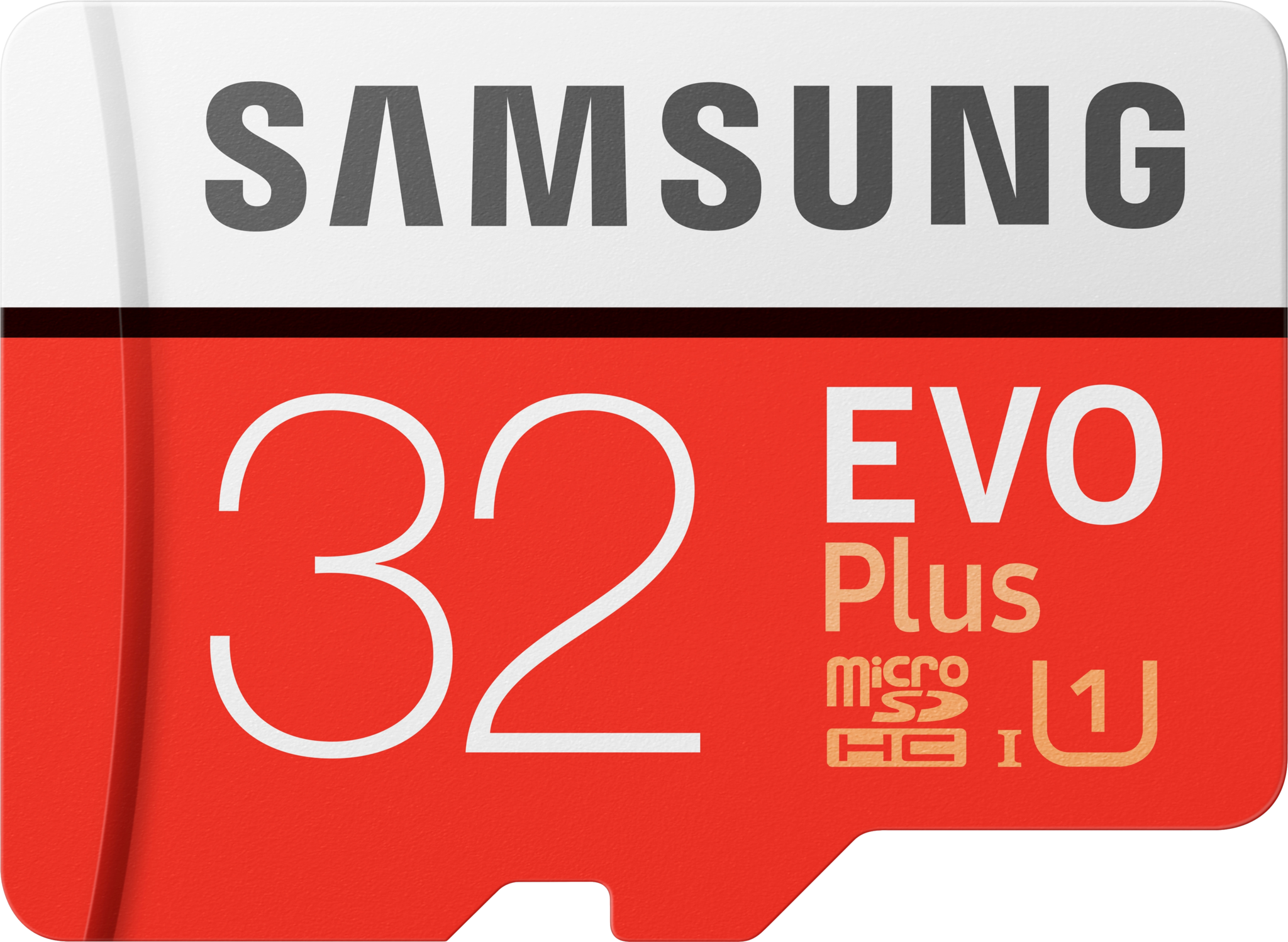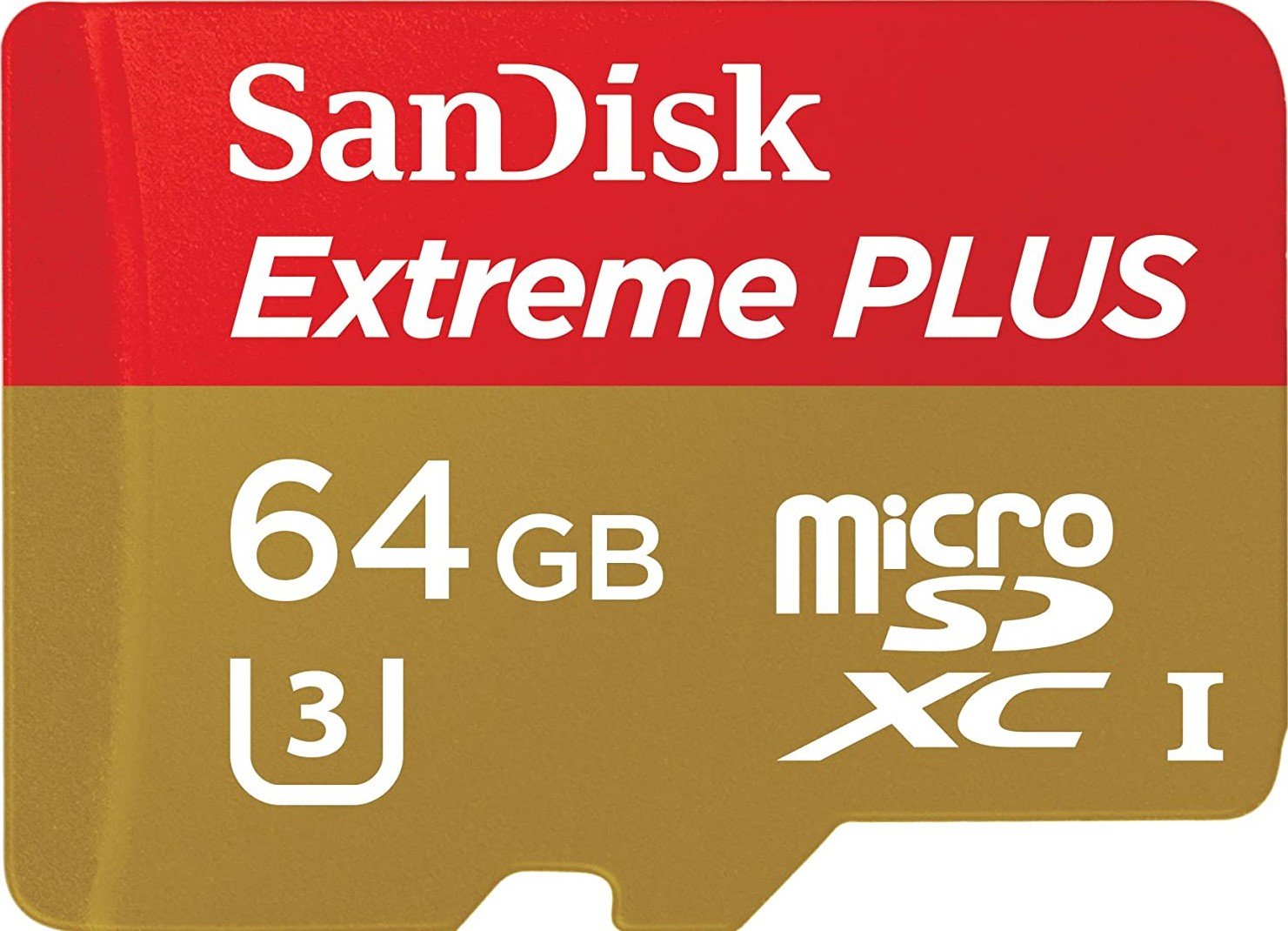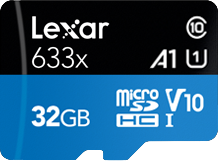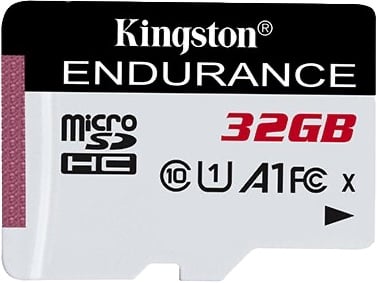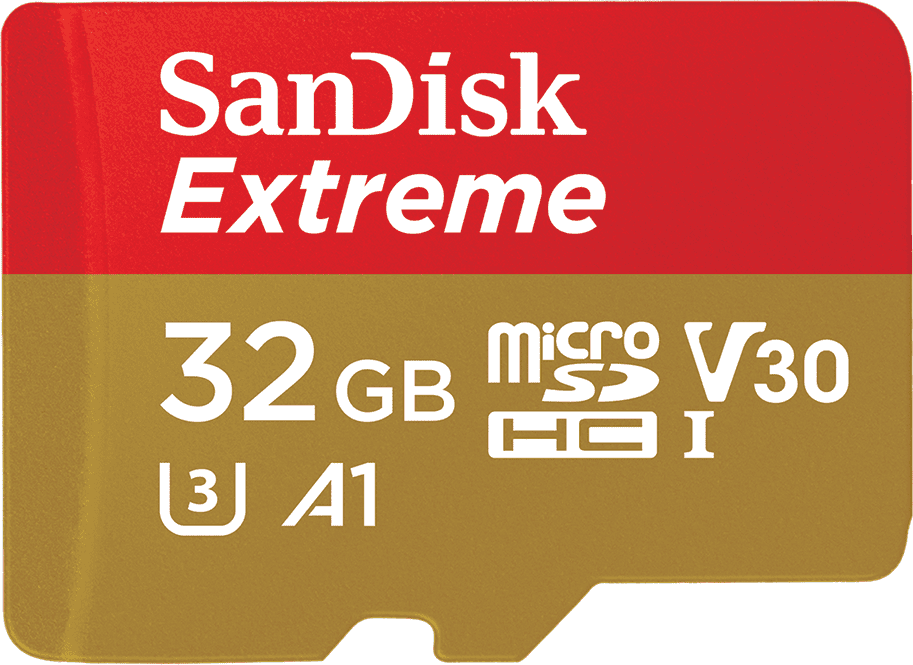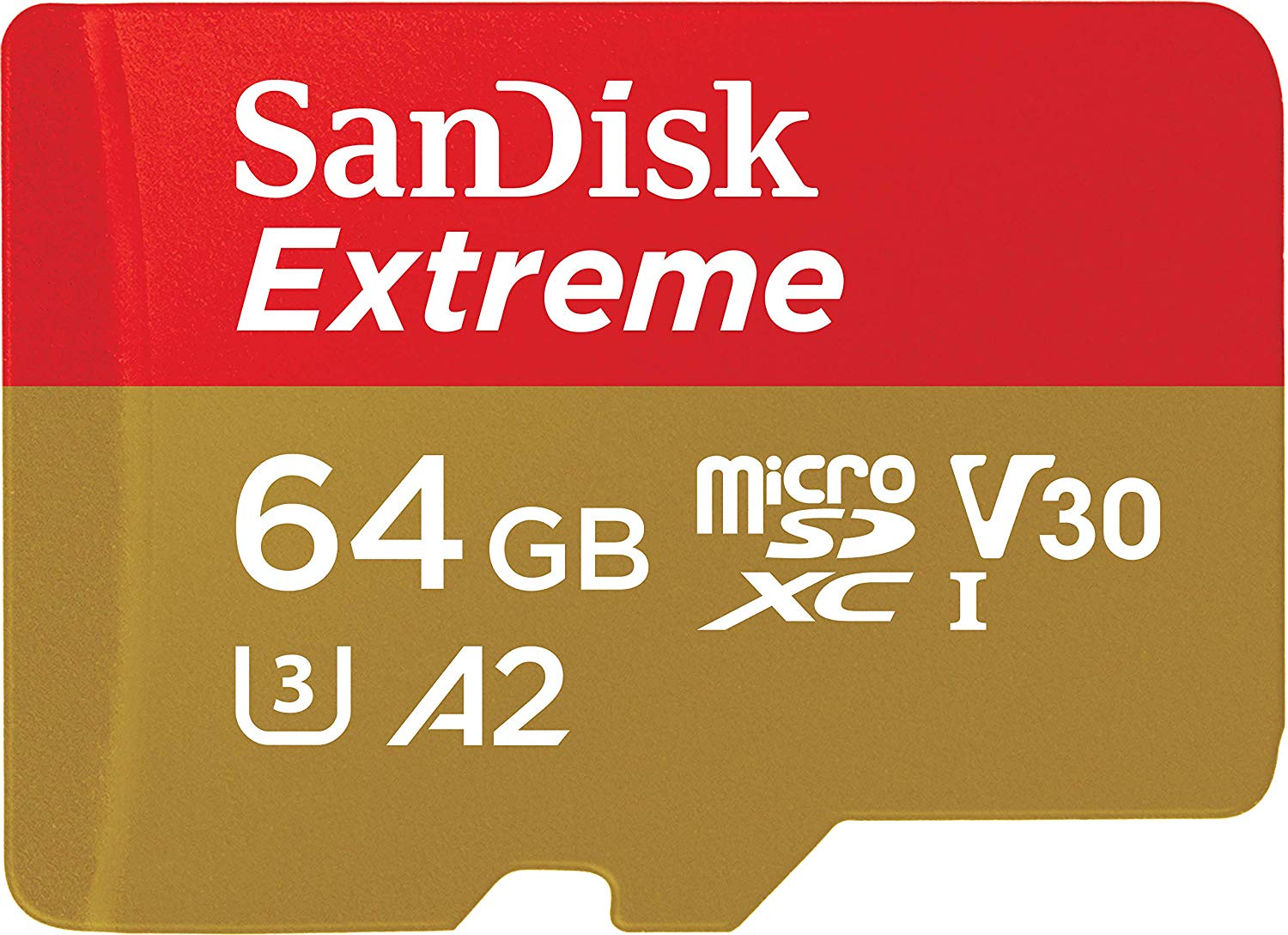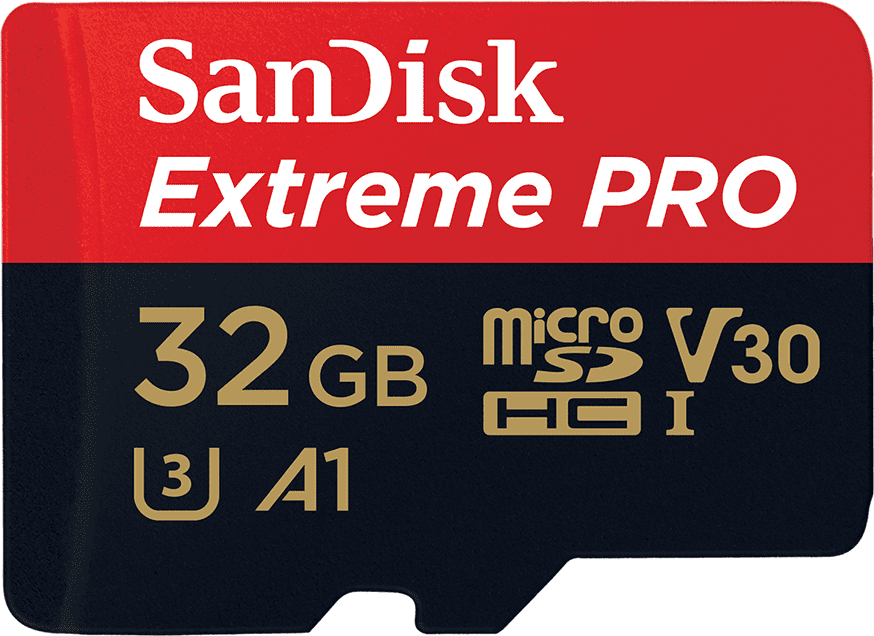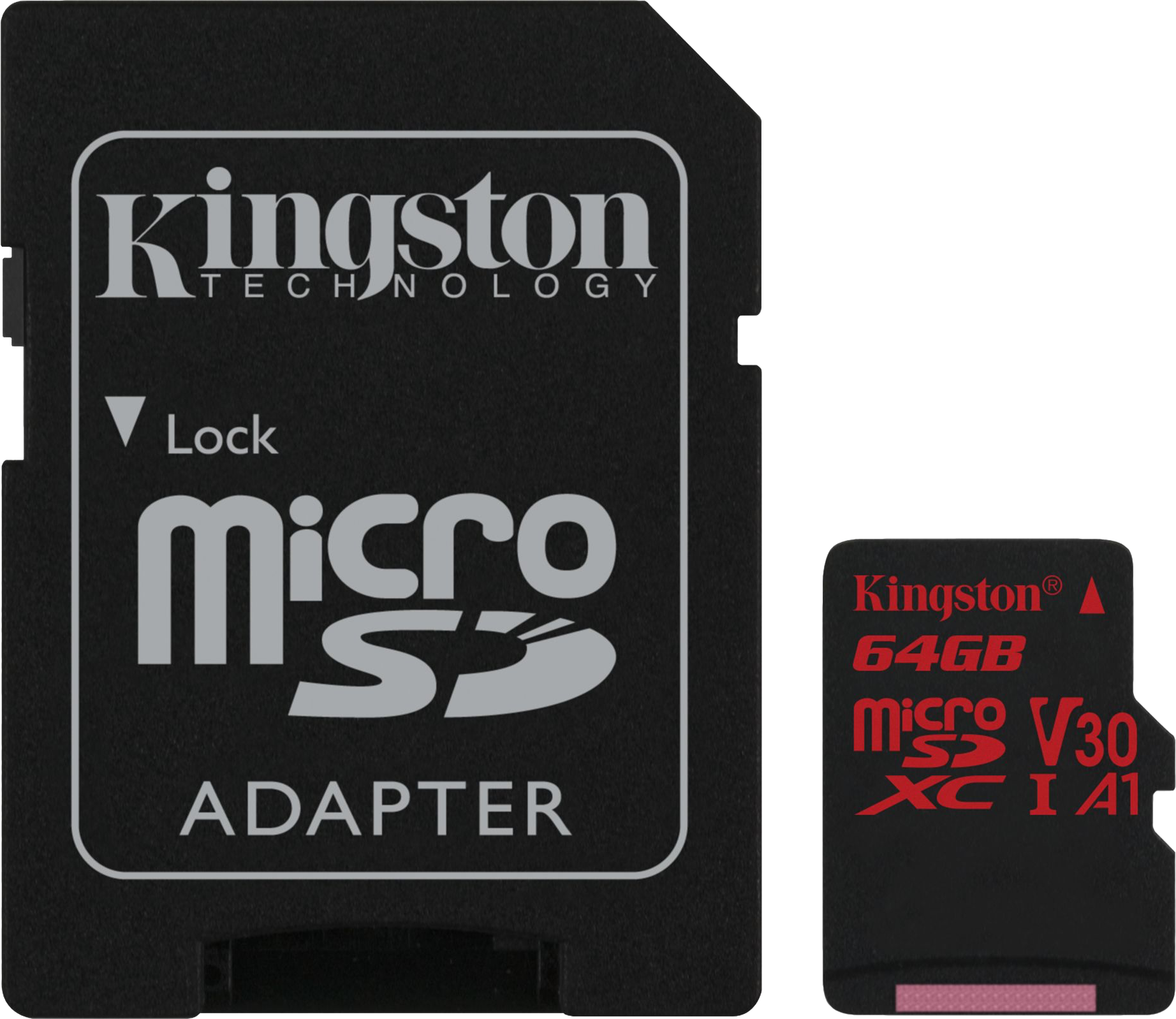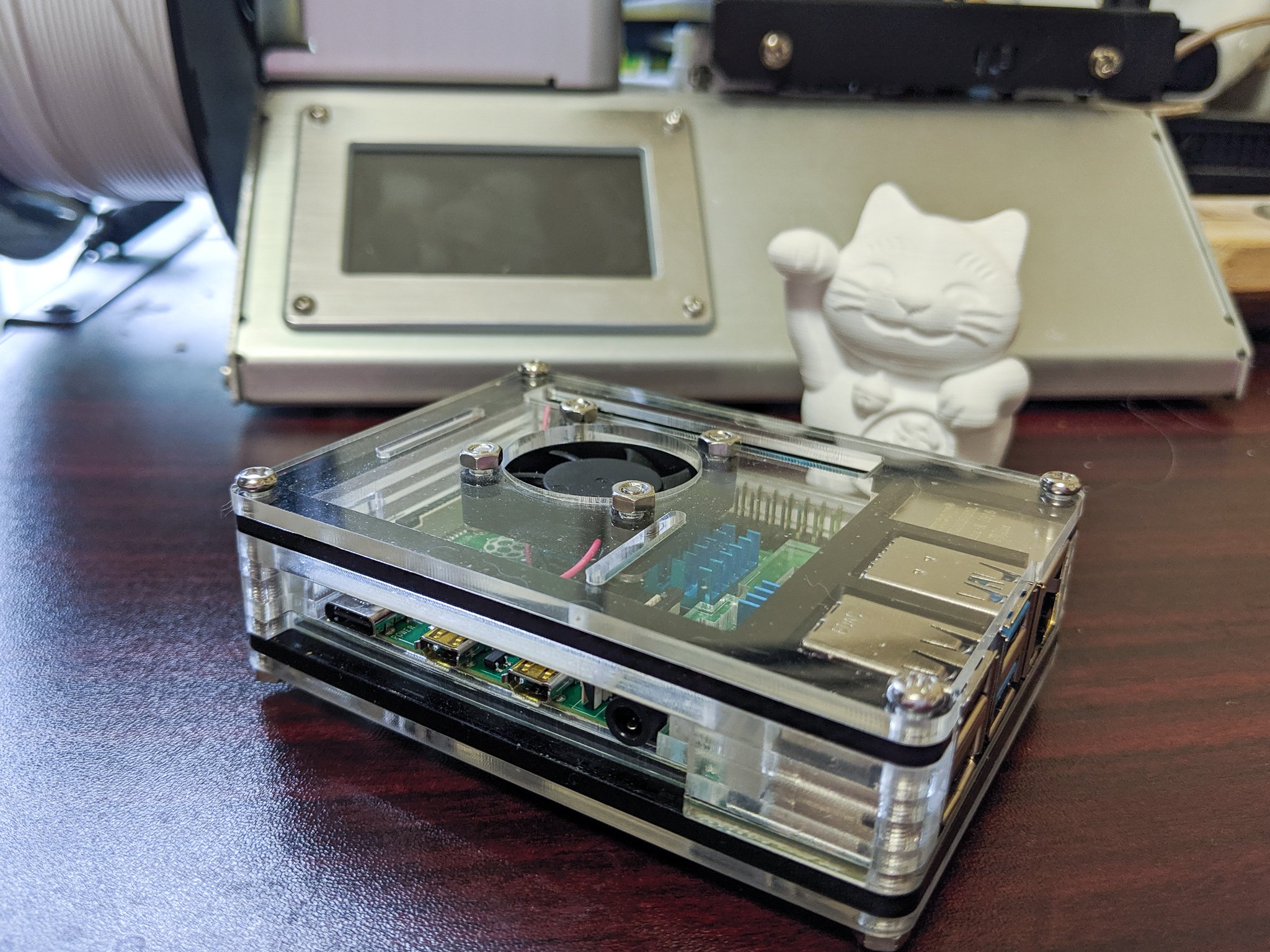- Get link
- X
- Other Apps
- Get link
- X
- Other Apps
Your Raspberry Pi 4 doesn't have any internal storage of its own so all of the software, including the operating system, runs off the SD card you supply. That means it's essential to find the right card; one that's fast enough, robust enough, has enough storage, and won't break the bank. You can use any SD card, but here's a list that will help you get the most out of your Pi.
Best all around
Samsung EVO+ 32GB
Staff Pick
Samsung's 32GB EVO+ card ticks all the right boxes when it comes to using it in your Raspberry Pi 4. It's fast enough, hits the maximum native format size, and it's nice and inexpensive. If you're not sure which card to get, pick this one.
More storage for the pro
SanDisk Extreme Plus 64GB
If you need more space, the 64GB version of SanDisk's Extreme Plus card is a great option as long as you correctly format it using the FAT32 file system. If you need the extra space, it's worth it.
$24 at Amazon $25 at Best Buy $28 at Walmart
Nice and cheap
Lexar 633x 32GB
This 32GB card from Lexar isn't going to win and speed tests when used in the Raspberry Pi 4. But it's super cheap and perfect for someone who wants to save a little cash or likes to swap things up by using different software on different cards.
$7 at Amazon $13 at Walmart $7 at B&H Photo
Better for travelers
Kingston High Endurance 32GB
Kingston's High Endurance card may not be the fastest out of the bunch, but you'll make up for with durability and reliability. Read speeds come in at 95MB/s and write speeds hover around 45MB/s. Kingston also promises the card can withstand water, shocks, and just about anything else that could interrupt performance.
$11 at Amazon $14 at Walmart $11 at B&H Photo
Life in the fast lane
SanDisk Extreme 32GB
This 32GB card from SanDisk costs a couple of dollars more than some others, but it's the fastest and best performing card in the Raspberry Pi 4 according to independent tests. If you need the slightly quicker read times, it's money well spent.
$11 at Amazon $15 at Walmart $11 at B&H Photo
Big and Fast
SanDisk Extreme 64GB
Some of the performance gains will be lost when formatting as FAT32, but if you need the fastest 64GB card, this is it. Since we think 64GB is the maximum size you should use in the Raspberry Pi, think of this one as the gold standard.
$16 at Amazon $25 at Walmart $16 at B&H Photo
For the NOOBS
SanDisk Ultra 32GB preloaded with NOOBS OS
A1 class cards don't make a difference when used in the Raspberry Pi 4, but they also don't make read and write speeds any worse. Buy this one because NOOBS OS — the Raspberry Pi Foundation's operating system(s) of choice — is preloaded.
Rugged and quick
SanDisk Extreme Pro 32GB
The SanDisk Extreme Pro was made with stability and ruggedness in mind, as it's shockproof, waterproof, and even temperature proof. The card provides read speeds up to 100MB/s while also including a SD card adapter if you need to transfer files between your computer and the Raspberry Pi 4.
$13 at Amazon $21 at Walmart $15 at Newegg
Faster reactions
Kingston Canvas React 64GB
Provided that you format the card to FAT32, the Kingston React 64GB will be more than sufficient for your Raspberry Pi needs. With read speeds up to 100MB/s, you'll get fast transfers along with a lifetime warranty in the event something goes awry.
A Raspberry Pi does things a little different
You've probably used a micro SD card before even if you've never used a Raspberry Pi, but the little board that can do it all also does SD cards a little differently than you might be used to.
The first thing to know about is the read and write speed. Micro SD cards are marketed using their maximum throughput speeds, and for most applications this is fine. But when you use the card as the boot partition, the OS partition, and the storage partition random input and output speeds matter a lot more than optimized throughput speeds. In plain English — any SD card will never reach it's advertised speed when used in your Raspberry Pi. Jeff Geerling has taken the time to test all the major brands in the Raspberry Pi 4 and found that the Samsung EVO+ and SanDisk Extreme deliver the most consistent speeds, which is why they both come so highly recommended.
Another thing to know is that the Raspberry Pi only supports cards of 32GB or smaller unless you reformat them. This is because cards larger than 32GB are formatted using the exFAT file system and the Raspberry Pi bootloader only works with cards formatted as FAT16 or FAT32. You'll need to know how to do this using another computer before you can expand a file system onto one, or use a tool that formats and partitions the card as an image. If you're not sure how to go about this or don't have time to fuss with it, stick to 32GB or lower cards. The OS is so small you'll probably never even notice.
As for myself, I switched to the Samsung EVO+ brand of cards a few months ago and have a 32GB model inside every Pi I have in use. I can heartily recommend them as the best value out there for use in your Raspberry Pi.
- Get link
- X
- Other Apps
